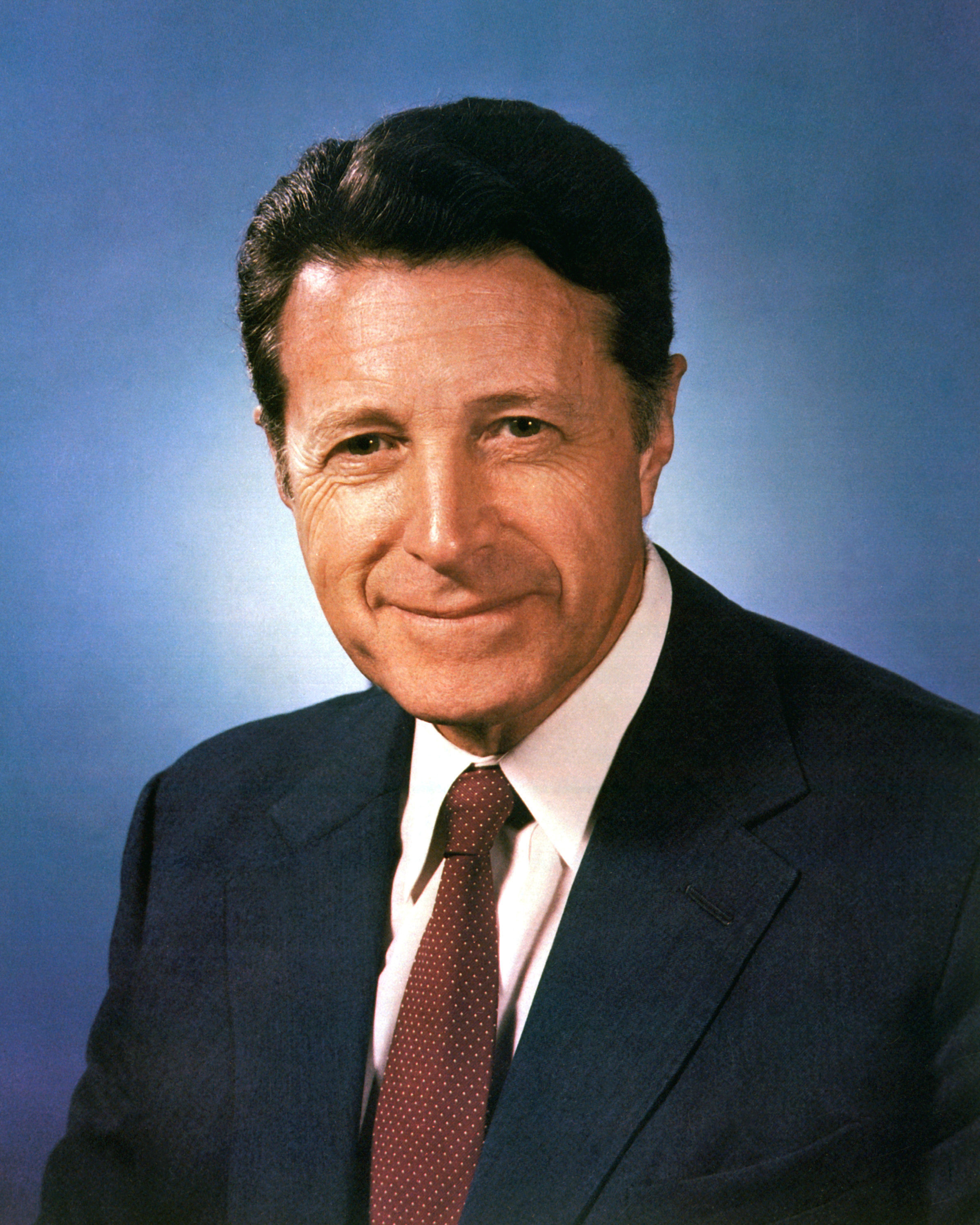
Caspar Weinberger
Caspar Willard Weinberger GBE (August 18, 1917 – March 28, 2006) was an American politician and businessman. As a Republican, he served in a variety of state and federal positions for three decades, most notably as Secretary of Defense under President Ronald Reagan from January 1981 to November 1987.[1] He was indicted on charges of lying to Congress and obstructing government investigations as part of the Iran–Contra investigation, but was pardoned by President George H. W. Bush before facing trial.
Caspar Weinberger
Gordon P. Smith
John Krehbiel
Gaylord Parkinson
2
1941–1945
Weinberger was a member of the California State Assembly from 1953 to 1959. He also served as Chairman of the Federal Trade Commission and Director of the Office of Management and Budget under Presidents Richard Nixon and Gerald Ford. He later became vice president and general counsel of Bechtel Corporation.
Weinberger's tenure as Secretary of Defense was marked by his hard line against the Soviet Union, in disagreement with the State Department. He promoted the Strategic Defense Initiative, an orbital weapons program. Weinberger was awarded both the Presidential Medal of Freedom by Ronald Reagan in 1987 and an honorary British knighthood from Queen Elizabeth II. In 1993, he became Chairman of Forbes magazine.
Career[edit]
Military service[edit]
After graduating from Harvard Law School, Weinberger enlisted in the U.S. Army as a private. He was sent to the Army's Officer Candidate School at Fort Benning, Georgia (now Fort Moore), where he was commissioned a second lieutenant. During World War II, he served with the 41st Infantry Division in the Pacific; by the war's end, he was a captain on the intelligence staff of General Douglas MacArthur. Early in life, Weinberger developed an interest in politics and history, and, during the war years, a special admiration for Winston Churchill, whom he would later cite as an important influence in his life. From 1945 to 1947, Weinberger was a law clerk for U.S. circuit judge William Edwin Orr of the United States Court of Appeals for the Ninth Circuit. He then entered private practice at a San Francisco law firm.
California politics[edit]
In 1952, Weinberger entered the race for California's 21st State Assembly district[5] in the San Francisco Bay area as a Republican at the persuasion of his wife, Jane Weinberger,[6] who also served as his campaign manager.[7] He won and was reelected in 1954 and 1956. As the chairman of the Assembly Government Organization Committee, Weinberger was responsible for the creation of the California Department of Water Resources and was instrumental in the creation of the California State Water Project. Weinberger also unsuccessfully opposed the construction of the Embarcadero Freeway, saying it would ruin the view of the Bay and damage property values.[8] Weinberger felt vindicated when the freeway was removed after the 1989 earthquake. Although unsuccessful in his 1958 campaign for California Attorney General, Weinberger continued to be active in politics and was chosen by Nixon in 1962 to become chairman of the California Republican Party.
Governor Ronald Reagan named him chairman of the Commission on California State Government Organization and Economy in 1967 and appointed him State director of finance early in 1968. Weinberger moved to Washington in January 1970 to become chairman of the Federal Trade Commission. He is credited for having revitalized the FTC by enforcing consumer protection.[9]